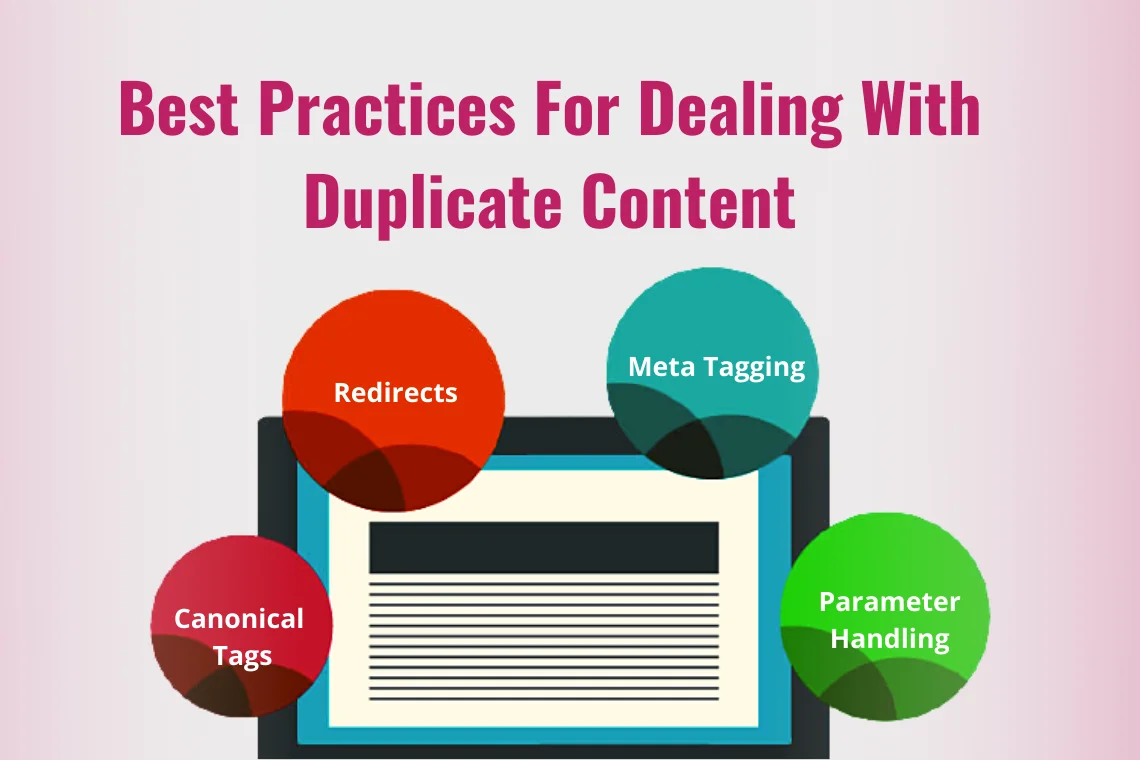The appearance of similar content on other websites or in multiple places on a site or social media platforms is not an uncommon issue. This duplicate content may be due to intentionally copying texts from your site or can be accidental, however, it must be addressed properly. In this blog, we will evaluate the possible effects of duplicate content on a website, the best ways to identify and fix duplicate content.
What is duplicate content?
In the field of SEO, duplicate content is defined as the content that is the same across multiple web pages of your site or on different web addresses anywhere on the internet. It is categorized into two types:
1. Internal duplicate content – when copies of content are found on multiple web pages on the same website.
2. External duplicate content – when the same content is duplicated in two or more domains. It is also called cross-domain duplicates.
Causes of duplicate content
Let’s take a look at some of the most common causes for duplicate content.
- Website addresses can appear in different variations, like HTTP or HTTPS, WWW or non-WWW and pages with or without trailing slashes. Incorrect configuration of the server will make your website accessible at two or more of these URL variations.
- When different websites sell similar products, sometimes they all use the same descriptions in multiple locations across the web.
- Sometimes, other websites use your content on their websites with or without your consent and might not always link to your original article.
- E-commerce websites use faceted navigation to filter and sort items on the page. Improper implementation of faceted navigation results in duplicates.
Impact of duplicate content on SEO rankings
- The internal duplicate content exerts the greatest influence on your SEO than the external one. It will impact the website’s quality, score and credibility, thus leading to lower crawl frequency and rankings.
- When identical content appears on multiple websites, the Google algorithm will show the site with the highest authority, even if it is not the original source.
- Having some similar content is sometimes unavoidable, but when a large amount of content is intentionally copied from other sites to manipulate rankings, then it can invariably harm your site rankings and Google will penalise or deindex your website.
How to check and deal with duplicate content?
To check for duplicate content within the website and across the web.
- Go to Ahrefs site audit and start a crawl. Now, head to the content quality report and look for clusters highlighted in orange without a canonical. These are duplicates and near-duplicates.
- Look for warnings in the Google search console and HTML tags report.
- Use any of Google’s duplicate content checker tools, like Copyscape, Plagspotter, to check occurrences of the content on your page on the web.
- Find duplicate content by searching Google for a snippet of text from your page in quotation marks.
If the content has been scraped, then the related URLs will show up on the SERPs.
Below are some of the best practices for dealing with duplicate content.

- Canonical tags
Adding rel=canonical attribute to a page makes it clear to Google which version of a page is preferred for indexing. The canonical tag can be used for print, mobile, desktop and web versions of content.
- Redirects
A typical solution for eliminating duplicate content is to implement a 301 redirect to the higher-performing pages in search results.
- Meta tagging
Using the ‘no-index’ meta robots tag to the HTML code of the page will effectively make Google not index a page and preferably, not to show in search results.
- Parameter Handling
Employ parameter handling through Google search console and Webmaster tools to signal search engines that these pages should not be crawled.
Conclusion
Understand that possessing large amounts of duplicated content on a website will harm your SEO rankings and organic traffic. Although penalties are rare, search engines treat these pages as less authoritative. Google wants to rank and index web pages with distinct information. Hence, detect and fix duplicate content issues for better rankings and quality scores in SERPs. However, it might take time, but make sure you take action.

Durga
About The Author…
Durga has a master’s degree in engineering. Technological advances in digital space interest her a lot. Digital marketing is her forte and she passionately follows latest trends in the digital marketing space. She has written many trending articles on various social media platforms. Her areas of interest include SEO Optimization, structured data, SMM, Keywords research and analysis etc. She is focused, resourceful and dedicated.

